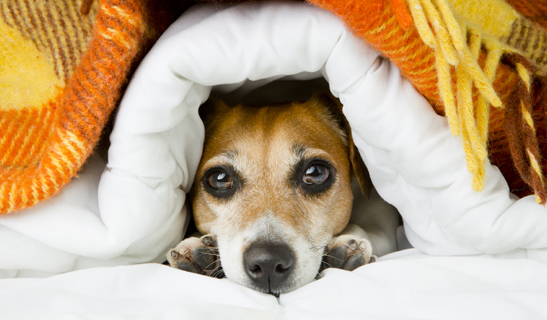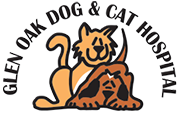
Fireworks and Pets: Helpful Tips For The 4th Of July
With the 4th of July just around the corner, many of us are getting ready to celebrate Independence Day with cookouts, family gatherings and watching public fireworks displays. While we humans are having a grand old time, we must remember our furry pals who don’t always share our zeal for loud explosions and brilliant visual displays. In this article we hope to provide you with some easy to implement tips on how to keep your pet safe and as comfortable as possible around fireworks.
Easy tips to use at home
- Know when specific fireworks displays will be happening in your area so you can prepare for them ahead of time. In some areas, local private fireworks, noise makers etc. start occurring days, sometimes even weeks before and after the 4th which is more difficult to prepare for.
- While the fireworks are going off and even before, try to act calm and natural around your pet. They may pick up on your body language and react to any nervous behavior you exhibit, giving them a reason to feel that there is something to be afraid of.
- Try to reduce or drown out the sound of the fireworks. Close your windows and fill the room with familiar sounds that your pet isn’t afraid of like the television, or music on in the background. Fans or air conditioner noise can often help mute the external sounds as well.
- Be sure to provide access to a comfortable place for your dog or cat to hide if they want to. This could be under a table, in a closet etc. It is ok to comfort them if they retreat to their “safe place” but do not try coax them out if they don’t want to leave.
- Understand your pet’s comfort zone. If they feel more comfortable in their crate or under a bed, resist the urge to pull them out or try to force them to “get used to” the fireworks. Doing this will more than likely increase the levels of fear and anxiety and is counterproductive.
- If your dog or cat gets surprised and scared by a sudden loud noise, they will often bolt for safety. It is a good idea to remove or secure valuables and breakables ahead of time. Also, make sure your rooms are free of any dangerous items or sharp objects that your pet may run into if they are panicking and running fast.
- Never punish or yell at your pets because they are frightened. This negative reinforcement is unproductive and may make the situation worse.
- Make sure your doors are closed and your pets cannot run out. Often if a pet is extremely frightened they may try to run out of the house. It is also a good idea to make sure that your pets have ID tags or are microchipped and any registrations are up to date and paid for. In the event that they panic and escape, you will want to be able to locate them if they are found or picked up.
 Do not leave your pet outside if possible. The noise is much louder and the vibrations are much more acute. If you absolutely must leave your pet outside, make sure they are not tethered or confined. The combination of being restrained and having no where to go will compound the effects of the loud noises, lights and smells and make the experience even more traumatic!
Do not leave your pet outside if possible. The noise is much louder and the vibrations are much more acute. If you absolutely must leave your pet outside, make sure they are not tethered or confined. The combination of being restrained and having no where to go will compound the effects of the loud noises, lights and smells and make the experience even more traumatic!
Treatments and Therapies
- If your pet suffers from severe anxiety, pharmaceuticals may be needed to help manage their symptoms. There are also natural/homeopathic remedies that do help with noise phobias like Thunderstorm Anxiety in dogs. Any medication should only be administered after talking to your veterinarian.
- “Anxiety vests” like the Thundershirt can sometimes be an effective tool in helping calm dogs who have above average anxiety levels. They can provide a “swaddling” effect that has been proven to provide relief for some dogs that respond positively to them.
- Desensitization techniques can sometimes help pets overcome a phobia to loud noises. There are dedicated programs developed like Sound Therapy For Pets that provide a guide and some free downloadable sound files. As always, it is best to consult with your vet before you try to administer these types of therapies at home.
- In some cases your pet may be so traumatized by the frightening sounds that they continue to be affected even after the event/period of noise is over. If their fear persists and are acting abnormally, seek the advice of your veterinarian.
